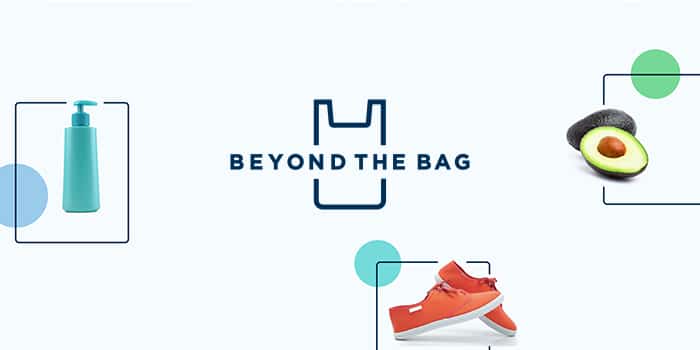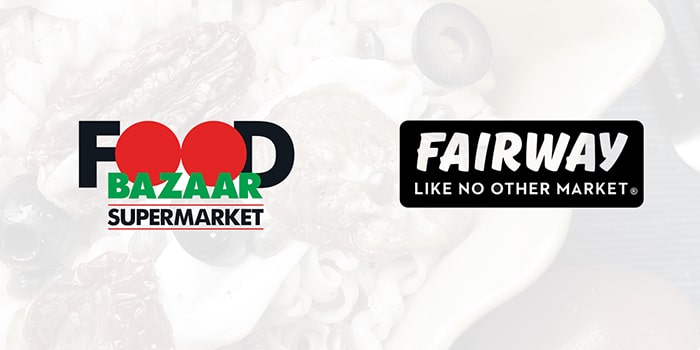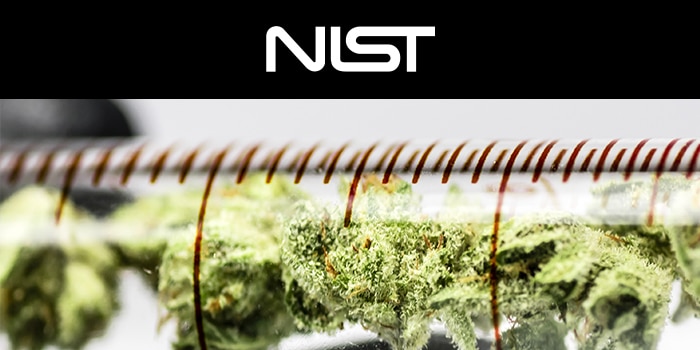The Checkout: Hershey Reports Q2 U.S. Sales Growth; Bogopa Buys Two Fairway Stores
Welcome to The Checkout: an express lane for weekly news you need to know, always 10 items or less.
Hershey: U.S. Sales Grew in Q2
During its second quarter earnings call yesterday, the Hershey Company reported overall net sales declined 3.4% to $1.71 billion during the quarter, but net sales in North America grew 1% to $1.58 billion as consumption of chocolate products and salty snacks increased. Looking ahead, Hershey president and CEO Michele Buck said she expects Halloween — which usually comprises 10% of Hershey’s annual sales — to remain a bright spot despite the pandemic.
The company saw “significant changes” during the quarter, Buck noted in her prepared remarks. Although international business and foodservice sales declined, consumption in North America was strong, including in better-for-you snacks. For the 12 weeks ended June 28, Hershey’s retail sales increased 4.1% year-over-year in MULO and c-stores, according to research firm IRI. While the company’s salty snack brands faced supply issues at the start of Q2, production improvements led to sales growth in May and June. Snack brands Skinny Pop and Pirate’s Booty’s sales grew 8.4% and 3.7%, respectively, with notable traction in club and e-commerce. Overall, the company’s online business grew 200% during the quarter and could comprise 5% of total company sales by the end of 2020, according to Buck.
“Our strength is not just in c-stores so that is helping our margin, which takes pressure away from other channels,” she said.
With consumers staying at home, sales for Hershey’s baking Items, including peanut butter, syrup, chips and cocoa, increased 41%, and the company increased its marketing spend to release more content around baking and recipes. Hershey this month joined a host of large CPG companies in suspending its Facebook advertising, and is reallocating the funds toward other channels like YouTube, Buck said.
Also during the quarter, the company completed its planned divestitures of Krave, Dagoba and Scharffenberger, which were announced in April. Krave has since been acquired by its original parent company, Sonoma Brands, which also last month purchased premium jerky brand Chef’s Cut.
Looking ahead, Buck said Halloween could be mostly business-as-usual for Hershey: food packaging does not spread COVID-19, trick-or-treating happens outside — and it already involves mask-wearing. Due to the uncertainty, Hershey will reduce its use of Halloween-themed packaging this year and instead focus on merchandising and leveraging media investments to “remind and excite consumers about the holiday,” Buck said.
Retailers Unite to Fight Plastic Bag Waste
Some of the country’s largest retailers are looking beyond plastic. New York-based investment firm Closed Loop Partners and founding partners CVS Health, Target and Walmart this week launched ‘Beyond the Bag,’ an initiative to fight single-use plastic bag waste.
The project, part of Closed Loop Partners’ research and innovation arm, the Center for the Circular Economy, also counts retailers Kroger and Walgreens as supporting partners and is collectively dubbed the ‘Consortium to Reinvent the Retail Bag.’ The group has committed about $15 million over three years to develop a sustainable bag alternative and encourages more retailers to join the effort, according to a release. Additional partners include environmental organizations Conservation International and the Ocean Conservancy as well as global design firm IDEO. Previously, the Center for the Circular Economy worked with food and beverage brands to commercialize a sustainable cup, of which prototypes are now being tested.
After receiving design submissions from a global Innovation Challenge, the consortium will select, test and implement a convenient bag solution beginning in U.S. retailers. Closed Loop Partners will launch a Circular Accelerator to support the endeavor. Additionally, the group will engage with policy makers, trade associations, non-governmental organizations (NGOs) and others to educate and enact broader changes.
Over 100 billion single-use plastic retail bags are used in the U.S. yearly, with under 10% of them recycled, the release notes, citing data from the Waste Management Journal and Environmental Protection Agency (EPA). According to Closed Loop, most bags are made from low-cost, fossil fuel-derived virgin plastic that’s not compostable. While many consumers choose reusable bags, there isn’t a one-size-fits-all solution at scale, according to Closed Loop.
The waste issue, combined with climate change and the pandemic, reveals major structural problems in the food and retail landscape, the company noted.
“The status quo has been shaken, presenting a unique opportunity to build back better and reimagine a more resilient and sustainable way of doing business,” said Kate Daly, managing director of the Center for the Circular Economy at Closed Loop Partners. “During challenging times, unexpected and unprecedented collaboration is required and we’re excited to work with leading retailers – along with the entire industry – to take effective action.”
Bogopa Service Corp. Acquires Two Fairway Market Stores
Brooklyn-based Bogopa Service Corp., which operates the Food Bazaar grocery chain, this week completed its acquisition of two New York-based Fairway Market stores in Red Hook, Brooklyn and Douglaston, Queens.
Bogopa owns 26 Food Bazaar stores in New York, New Jersey and Connecticut, including six in Brooklyn and six in Queens. The grocer opened its first location in 1988 with the goal of introducing international ingredients to New York City residents; Bogopa means “yearning for you” in Korean. Fairway developed a loyal clientele in New York for its specialty items, including international ingredients as well as its own private label coffee, fresh fish counter and more.
According to court filings, Bogopa will employ up to 90% of Fairway’s staff.
“We are pleased to pass the baton to Food Bazaar, knowing they will welcome our employees to the Bogopa family and will deliver a world-class shopping experience,” Fairway Market CEO Abel Porter said in a release.
Fairway Market filed for Chapter 11 bankruptcy protection in January, announcing plans to sell its five Manhattan stores and distribution center to Village Super Market for $70 million, and three others have since been acquired — two by Amazon and one by Seven Seas. The locations have remained open during the pandemic. Also in January, Lucky’s Market announced plans to close its 32 stores across 10 states, after retailer Kroger divested its stake in the specialty grocer in December. In February, Earth Fare announced bankruptcy as well, but last month reopened the first of the eight locations it plans to revive.
NIST’s New Program Assists Labs in Testing Cannabis Products
Research agency the National Institute of Standards and Technology (NIST) this week launched a program to evaluate laboratories that measure chemical compounds in marijuana, hemp and other cannabis products, including edibles and tinctures. The program aims to increase accuracy in distinguishing between hemp, which was legalized under the 2018 Farm Bill and required to contain 0.3% THC or lower, and marijuana, which contains THC and is not yet federally legal.
As part of the agency’s Cannabis Quality Assurance (CannaQAP) program, NIST will send hemp oil samples to participating labs to measure compounds, and NIST will publish the results, without naming labs, and share with participants. The agency will then compare results and create assessments on best practices.
“Anonymity means that labs don’t have to worry about how their performance will be viewed,” NIST research chemist Melissa Phillips said in a release. “Our goal is to help labs improve, not to call them out.”
NIST is a non-governmental regulatory agency that is part of the U.S. Department of Commerce. The update comes after the FDA recently submitted a new safety report on CBD products to Congress; in the report, the agency tested for THC levels and accurate CBD content in a variety of CBD products, while the industry awaits federal guidelines.
Explore the Nombase CPG Database
Head to Nombase to learn more about the tagged companies and their offerings.





















